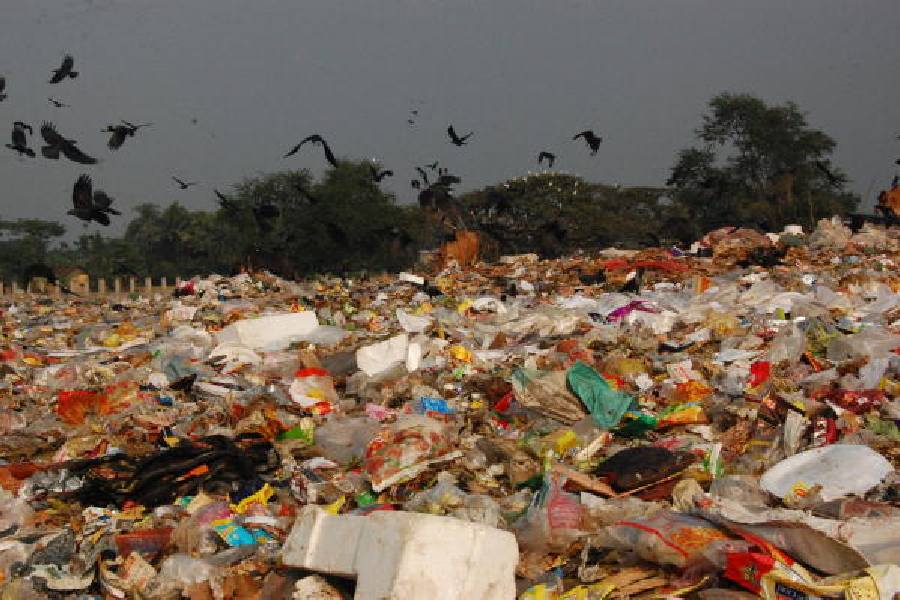Book: Wasteland: The Dirty Truth About What We Throw Away, Where It Goes, and Why It Matters
Author: Oliver Franklin-Wallis
Publication: Simon & Schuster
Price: Rs 799
Oliver Franklin-Wallis’s Wasteland not only looks at waste from a social perspective but also dissects the history of waste and its management in different countries, by different cultures and religions, and the institutional attitudes towards dealing with, or avoiding, it.
The book begins by talking about one of the gigantic mountains of plastic waste in Ghazipur, from where Franklin-Wallis takes his readers across various treatment plants, some legal, some not, where plastic, wastewater, metal scraps, food and cardboards are salvaged. Along an arc that joins Kanpur, Ghana, the United Kingdom and China, he discusses the typologies of plastic and chemical waste and the risks posed by inconvenient waste management practices, the rituals of capitalism and the legacy of colonialism. The historical perspective on London is brief but illuminating: the city salvaged itself with its famously elaborate sewage system having suffered cholera and plague epidemics. Franklin-Wallis’s narrative is also alert to contemporary dimensions of the challenge, including food wastage and river pollution: Yamuna, the “biologically dead” river frothing with the unchecked discharges from tanneries and distilleries, thus finds a mention in the book.
Wasteland is brutal in its gaze, its narrative smooth, unbroken, but not monotonous, fusing the history of waste, its present-day contours, with an insider-view of the waste industry. Incidentally, several waste recycling giants prevented Franklin-Wallis from getting a clear view — so he found an ingenious way out, befriending, for instance, Delhi’s kabadiwalas to get a sneak peek into the industry. Some others lead him down the dreary path of incinerators, German waste disposal machines, landfills, loading bays, and sewers.
The data that Franklin-Wallis digs up are frightening. But it is possible that only fear can motivate us to understand that what we consume, create and dispose of, over time, finds its way back to us.











